GENERAL SITUATION IN MEXICO

Weekly Review I November 27, 2024



Weekly Review I November 27, 2024

President-elect Donald Trump’s threat to impose 25% tariffs on goods from Mexico and Canada raised significant concerns in the auto industry, which heavily relies on both countries for parts and manufacturing. Industry experts warned that such tariffs could disrupt production at assembly plants across the U.S., increase vehicle prices, and lead to layoffs, exacerbating the challenges already facing the industry, including declining sales and a shift toward electric vehicles (EVs). The tariffs could also affect supply chains, as both Mexico and Canada are key suppliers of auto parts to U.S. manufacturers, including Tesla. Additionally, such measures could spur migration and encourage Mexican workers in the auto industry to seek employment elsewhere, potentially pushing Mexico closer to China, where automakers like BYD are increasingly eyeing opportunities in the region. The potential for tariffs sent shockwaves through Wall Street, with significant drops in the stock prices of major automakers like General Motors and Stellantis.
SOURCE: THE NEW YORK TIMES
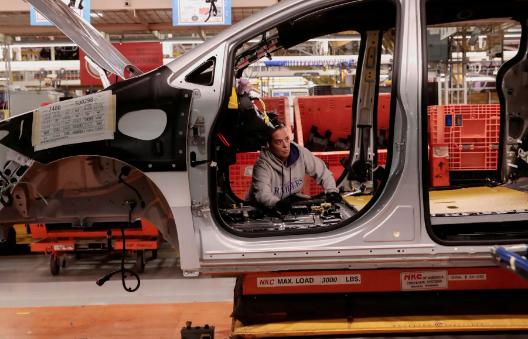
Mexico’s automotive sector is at a crucial juncture, with the shift towards electrification driving its future. At the 2024 Business Automotive Meeting (BAM), industry leaders discussed the opportunities and challenges associated with the transition to electric vehicles (EVs). Mexico, already a global leader in automotive manufacturing and a major exporter, is aiming to become a key player in the EV market. However, the shift to electromobility requires significant investment in energy infrastructure, logistics, workforce training, and regulatory frameworks. The Mexican Association of the Automotive Industry (AMIA) has urged the government to accelerate the transition to green technologies and develop policies to support EV production and charging infrastructure. While there are challenges—such as modernizing the energy grid, addressing trade barriers, and training a skilled workforce—the country’s existing manufacturing base and strategic position offer a strong foundation for success in the growing global EV market.
SOURCE: MEXICO BUSINESS NEWS

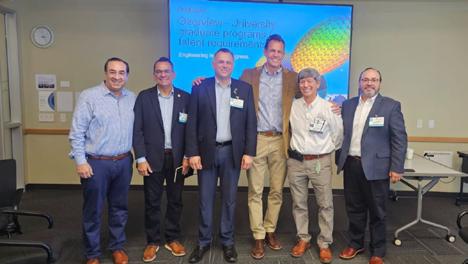

CETYS University has launched a new specialization in Semiconductors within its Master’s program in Engineering and Innovation to address the growing demand in the semiconductor industry and contribute to regional and national development by training specialized human capital. The global semiconductor market is expanding rapidly due to its role in producing smart devices, medical technologies, AI systems, and 5G infrastructure. This new specialization aims to deepen knowledge in semiconductor design, manufacturing, and testing, while fostering innovation and technological development. It also strengthens ties with industry leaders like Qualcomm and Infineon, positioning CETYS as a key player in advancing local and national economic growth.
SOURCE: INDUSTRIAL NEWS BC
The construction of the new Natura Industrial Park has begun southeast of Tijuana, a project developed by Grupo Musa and Grupo Ruba. Covering 180 hectares, the park will include 24 industrial warehouses to meet the growing demand for spaces in Baja California’s maquiladora sector. A total investment of 18.4 billion pesos will be made, and the development will feature integrated residential, educational, and commercial areas, reducing the distance between homes, workplaces, and essential services. The project is expected to create 27,000 direct jobs, benefiting thousands of families in the region. Baja California’s Governor, Marina del Pilar, highlighted that the state’s economic growth is reflected in over $5.3 billion in Foreign Direct Investment (FDI) and its leadership in economic and wage growth among northern Mexican states. She emphasized that investments like Natura Industrial Park are key to transforming the region, reinforcing Baja California’s position as a national leader in innovation, sustainability, and comprehensive development.
SOURCE: MEXICO INDUSTRY


Real estate transactions in Nuevo León have accelerated, driven largely by the region’s dynamic economy and the relocation of companies. This year, real estate transactions are expected to reach 8 billion pesos, marking a 25% increase with over 2,500 operations. Clara Londoño, president of the Alliance of Real Estate Entrepreneurs of Nuevo León, which represents 24 real estate firms, predicts a further 30% growth in the first and second quarters of next year, potentially setting record transaction numbers. A significant factor behind this growth is nearshoring, which has boosted the local economy and created demand for industrial warehouses and pre-leases in both the industrial and residential sectors. The demand for housing rentals remains high, despite rising prices, with people willing to pay substantial amounts, such as 35,000 pesos for central city rentals. Additionally, a new real estate corridor has emerged in the municipalities of Escobedo and Pesquería, where there is growing demand for industrial spaces. The alliance represents the 24 leading companies in the industry, with over 300 certified advisors.
SOURCE: EL ECONOMISTA
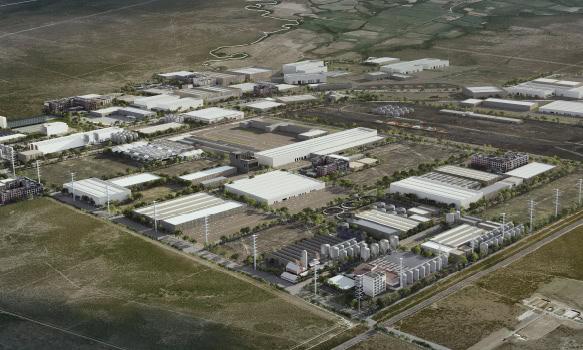


Governor Maru Campos of Chihuahua met with French Ambassador to Mexico, Delphine Borione, to revisit topics of collaboration that were discussed during the Ambassador’s recent visit to Chihuahua, particularly in the areas of sustainability, education, and economic development. During their meeting in Mexico City, the Governor emphasized that Chihuahua is a strong state that supports the business sector in achieving its goals. She also noted that her government is focused on making the state a favorable environment for foreign investment. Currently, more than 80 French companies operate in Chihuahua, providing quality jobs, especially in the aerospace sector, which is fostering talent development. The two leaders also discussed expanding a recent agreement to promote the exchange of university students and faculty, particularly in industrial engineering and related fields. The Governor highlighted initiatives such as the creation of the State Energy Agency to support clean energy projects and the installation of solar panels in over 100 government buildings as part of her administration’s long-term sustainability goals. Additionally, she shared the success of MediChihuahua, a

program that has provided healthcare to more than 267,000 uninsured individuals through 22 hospitals and 234 health centers. Both the Governor and Ambassador Borione agreed on the importance of strengthening ties between Mexico and France and committed to working together to ensure the ongoing development of key sectors in both countries.
SOURCE: GOVERNMENT OF CHIHUAHUA


The Technological University of Coahuila (UTC) and the Coahuila Automotive Industry Cluster (CIAC) have signed a collaboration agreement that will provide new internship opportunities for students within companies affiliated with the automotive sector in the Southeast Region. Sergio Guadarrama Cortez, the rector of UTC, emphasized the university’s commitment to working closely with the industrial sector to offer training programs for company employees who wish to enhance their workforce’s skills. He highlighted that internships, practical training, and dual education programs are tailored to meet the needs of the automotive cluster. This agreement formalizes the collaboration between UTC and CIAC, benefiting over 3,800 students enrolled at the university. Fabiola Aguilar Martínez, General Director of CIAC, and Juan Carlos Faz Mendoza, Coordinator of Committees at CIAC, were also present at the signing.
SOURCE: EL IMPARCIAL
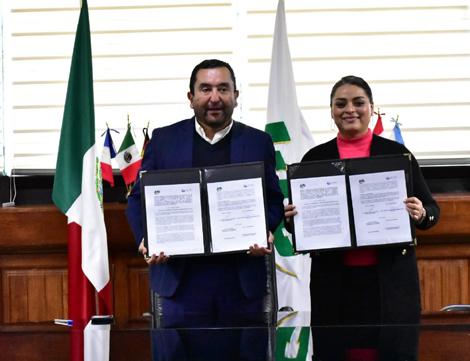



VYNMSA recently hosted an Open House for its new SPEC V industrial warehouse at the VYNMSA Guanajuato Industrial Park, showcasing its innovative design and growth potential. The 5,765 m² facility, expandable to 15,564 m², offers advanced features such as a steel structure, thermal insulation, skylights for natural light, and flexible design to accommodate specific client needs. With loading docks, ample parking, and logistics areas, it is built to attract national and international businesses. The park provides competitive advantages like access to skilled labor and 24/7 security. Denisse Michelini Ojeda, Director of Economic Development for Guanajuato, emphasized the warehouse’s role in driving investment, job creation, and regional development, particularly for local micro, small, and medium-sized enterprises.
SOURCE: MEXICO INDUSTRY

The Technological University of Querétaro (UTEQ) and the Development and Research Center (CIDESI) have signed a collaboration agreement to provide students and faculty with access to cutting-edge technology, equipment, and infrastructure for research in areas such as microelectronics, semiconductors, and artificial intelligence. Carlos Arredondo, Rector of UTEQ, emphasized that this agreement strengthens the university’s ties with CIDESI. Jesús Cruz Pineda Castillo, Director General of CIDESI, highlighted UTEQ’s strong academic reputation over its 30 years, particularly in areas related to Industry 4.0. The agreement is expected to significantly enhance UTEQ’s academic and research offerings, fostering knowledge development that will contribute to the growth of Querétaro and the country.
SOURCE: MEXICO INDUSTRY



Manola Zabalza, Mexico City’s Secretary of Economic Development, highlights initiatives to attract private investment tailored to the needs of each borough, promoting community well-being. The recently created InCDMX agency aims to draw local, national, and international investments in real estate, technology, and distribution sectors, fostering job creation and economic transformation. Modernization of public markets is also a priority, integrating technology for payment, logistics, and financial management. La Merced market, identified as a key project, will undergo innovations to enhance its cultural and economic impact, while rebuilding efforts following past fires focus on safety and tourism potential.
SOURCE: EL UNIVERSAL

The Industrial Union of the State of Mexico (UNIDEM) urged local legislators to allocate funds in the 2025 budget for rehabilitating deteriorated industrial zones, particularly in the Valley of Mexico. Francisco Cuevas Dobarganes, UNIDEM’s director, emphasized that improved infrastructure would attract investment, create jobs, and reduce the need for residents to commute to Mexico City. He highlighted the varying conditions of industrial parks, from modern private facilities to older municipal ones requiring significant repairs. The initiative aims to enhance productivity, safety, and employment opportunities, particularly in areas like Naucalpan, Ecatepec, and Tultitlán, which are in critical condition.
SOURCE: LA PRENSA
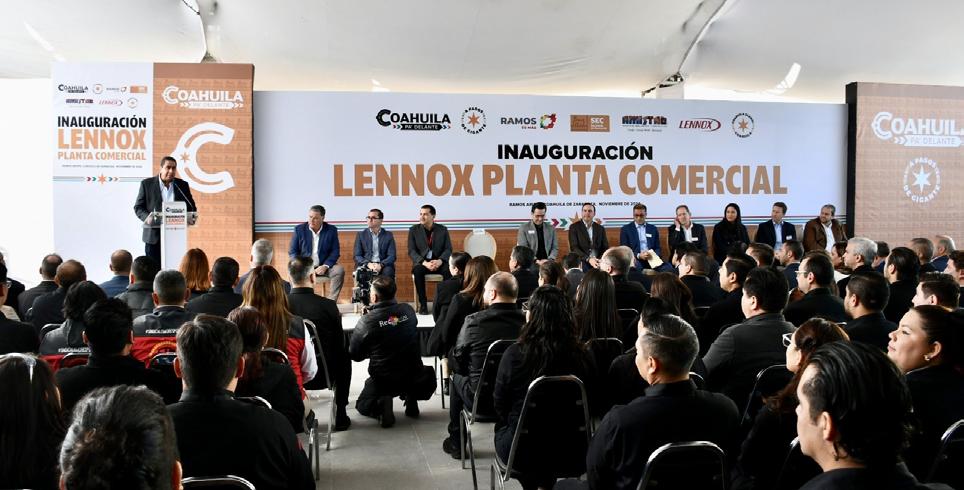
The inauguration of the Lennox Commercial Plant took place in Ramos Arizpe, within the Chuy María Industrial Park, in Ramos Arizpe, Coahuila. Over 150 million dollars were invested in its construction. It currently employs 900 workers and plans to increase its workforce to over 2,400 jobs in the coming years.
John Deere confirms its 55 million dollars investment for a new plant in Mexico, set to begin operations in 2026 and focused on construction equipment. The location and number of jobs have not yet been confirmed.
Kellanova Planta Toluca announced that it will invest 100 million dollars over the next four years to expand its production. This investment is part of the company’s ongoing efforts, as it already invested 27 million dollars in 2024 and plans to invest an additional 50 million dollars in expansions over the next two years.
SOURCES CLUSTER INDUSTRIAL , MEXICO INDUSTRY

PUBLIC ADMINISTRATION
• MINUTE WITH DECREE PROJECT TO AMEND, ADD, AND REPEAL VARIOUS PROVISIONS OF THE CONSTITUTION REGARDING THE ELIMINATION OF AUTONOMOUS ORGANIZATIONS
Presented by: Andrés Manuel López Obrador (MORENA)
Objective: Streamline the application of the Republican austerity policy by reincorporating the functions of autonomous and decentralized organizations into the Federal Public Administration. Proposes eliminating entities like COFECE, IFT, INAI, CONEVAL, CNH, and CRE while centralizing their responsibilities within corresponding federal agencies to prevent redundancy and inefficiency.
Status: Presented to the Plenary of the Senate for analysis and discussion
• BILL UNDER DISCUSSION WITH A DECREE PROJECT TO AMEND, ADD, AND REPEAL VARIOUS PROVISIONS OF THE ORGANIC LAW OF THE FEDERAL PUBLIC ADMINISTRATION
Presented by: Joint Committees on Governance and Legislative Studies
Objective: Restructure the Federal Public Administration to enhance efficiency, austerity, digital governance, and responsiveness to societal demands. Establishes new agencies and secretariats, redefining roles in key areas such as health, education, environment, telecommunications, security, anti-corruption, and foreign affairs, focusing on sustainability, innovation, and inter-institutional coordination.
Status: Presented to the Plenary of the Senate for analysis and discussion
• DECREE PROPOSAL TO AMEND ARTICLE 19 OF THE CONSTITUTION OF MEXICO ON CRIMINAL MATTERS
Presented by: Committee on Constitutional Points
Objective: Mandates automatic pretrial detention for extortion, drug dealing, crimes involving fentanyl and synthetic drugs, tax fraud, smuggling, and activities related to fraudulent tax receipts, as specified by law.
Status: Turned to Commissions
TECHNOLOGY
• GENERAL LAW OF PERSONAL DATA PROTECTION
Presented by: Sen. María Martina Kantún Can (Camp - MORENA)
Objective: Defines biometric data and sets strict rules for its collection, storage, and use. Requires explicit consent for biometric data processing and prohibits biometric databases from being shared with third parties, except as specified by law. Establishes confidentiality requirements and sanctions for noncompliance.
Status: Published in the Parliamentary Gazette
PUBLIC SECURITY
• EMPOWERMENT OF THE SECRETARIAT OF SECURITY AND CITIZEN PROTECTION
Presented by: Joint Committees on Public Security, Constitutional Points, and Legislative Studies, First Committee
Objective: To empower the Secretariat of Security and Citizen Protection with investigative authority, coordination of the National Public Security Strategy, oversight of the National Intelligence System, and enhanced collaboration across government levels. It establishes an Executive Secretariat to standardize criteria, ensure transparency, and audit federal security funds.
Status: Turned to local congresses
• VALUE ADDED TAX LAW (IVA)
Presented by: Sen. Armando Ayala Robles (BCMORENA)
Objective: Proposes a 5% VAT rate for the northern border region, applicable to individuals/entities earning at least 90% of their income in this region. SAT to issue general rules for compliance.
Status: Published in the Parliamentary Gazette
• ISR, IEPS, IVA LAWS
Presented by: Sen. Eugenio Segura Vázquez (QRMORENA)
Objective: Proposes tax incentives for residents and businesses in Mexican islands. Includes a 1/3 income tax credit and an 8% VAT rate for specific activities. Excludes certain industries like banking, maquila, and digital commerce from eligibility. Introduces fuel tax incentives for service stations in island territories.
Status: Published in the Parliamentary Gazette

THE FOOD & BEVERAGE INDUSTRY IN MEXICO
Key takeaways:
• Growing Export Market: Mexico’s agri-food exports reached over $50 billion in 2023, marking a 3.9% growth compared to the previous year, showcasing the robust expansion of this sector in global trade.
• Significant GDP Contribution: The agri-food sector contributes about 7% to Mexico’s GDP, with food, beverage, and tobacco production alone accounting for nearly 24% of total manufacturing GDP, underscoring its economic importance.
• Employment in the Sector: In 2023, Mexico’s agriculture and food industries provided employment for approximately 11 million people in agriculture; an additional 1 million in food, beverage, and tobacco production; and 5 million more in related areas, demonstrating the industry’s role in job creation.
• U.S. Market Dependency: Mexico is the largest source of U.S. horticultural imports, supplying 63% of vegetables and 47% of fruits and nuts in 2023, highlighting Mexico’s critical role in meeting the U.S. demand for fresh produce.

MEXICO’S PORT TERMINALS: THE BACKBONE OF INTERNATIONAL TRADE EFFICIENCY
Key taweaways:
• Strong Operations: Mexico operated 40 commercial ports that moved 294 million tons of cargo, attending 29,791 ships in 2023.
• Essential Private Investment: 82% of investment in Mexican port terminals is private, fundamental to the sector’s modernization and expansion.
• Resilient Infrastructure: Natural disasters and increased traffic demand prepared terminals and robust infrastructure to ensure continuous operations.
• Digitalization and Efficiency: Customs automation and 24/7 operations are necessary to reduce costs, clearance times, and improve competitiveness.
• Sustainability as a Priority: The transition to clean energy and green technology in terminals drives competitiveness and reduces environmental footprint.
• Public-Private Coordination: Collaboration between authorities and the private sector is key to strengthening the logistics ecosystem and tackling global trade challenges.